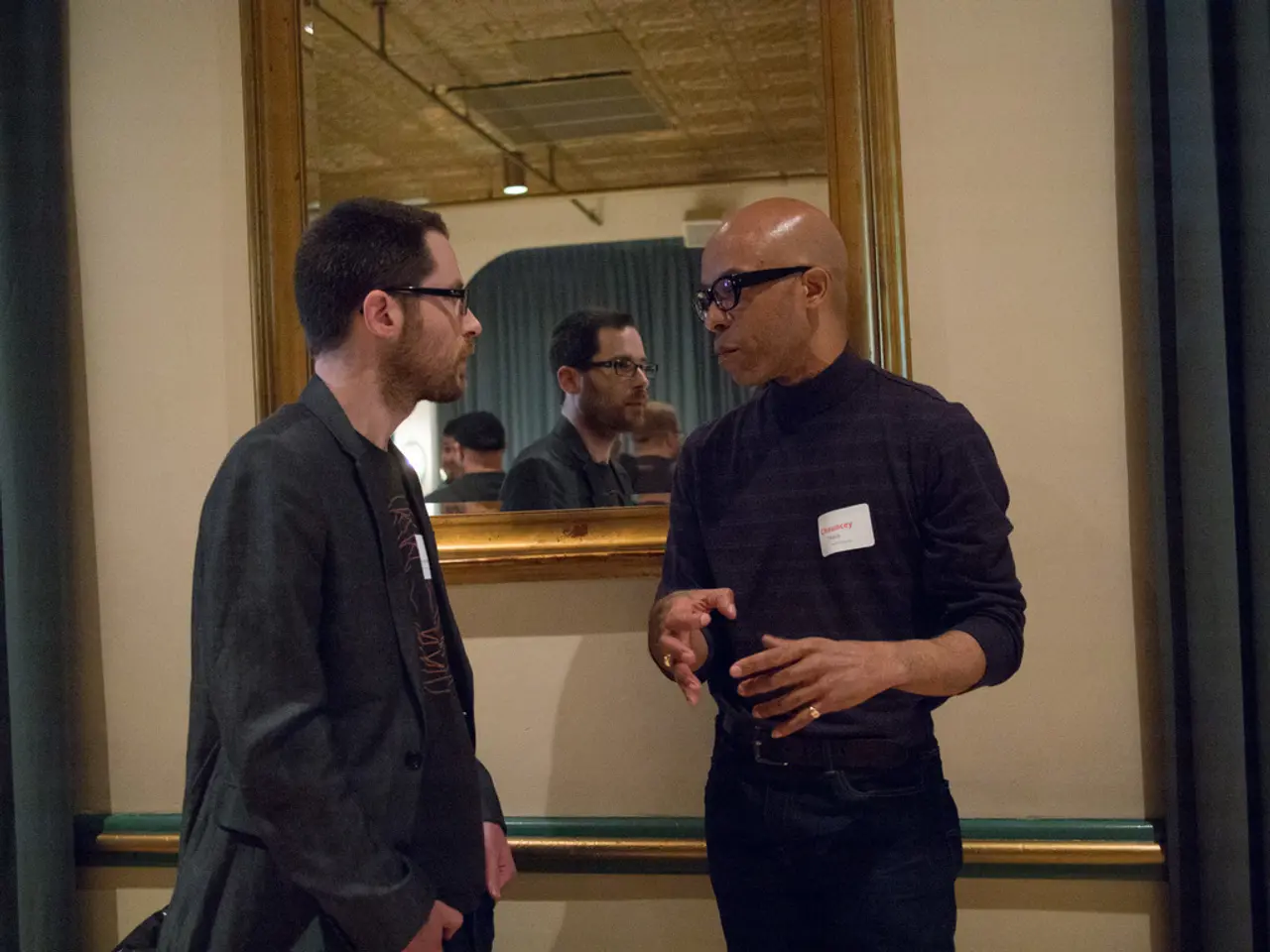Trump introduces 10% tax on Ghanaian goods under his tariff policy
In a move aimed at addressing perceived unfair trade practices, the Trump administration imposed a 10% reciprocal tariff on Ghana, effective from August 2025 [1][2]. This decision was part of a broader strategy targeting countries imposing higher duties on American goods, as the administration pushed for "fair and reciprocal" trade.
The Executive Order titled "Further Modifying the Reciprocal Tariff Rates," signed on April 2, 2025, aimed to address "unfair trade practices" that the administration believed were creating trade imbalances detrimental to U.S. exporters [1][2]. While the specific unfair trade practices related to Ghana are not detailed in the available sources, the adjustments are part of a broader U.S. assessment of countries with which it has persistent trade deficits or whose market access for U.S. goods is restricted or unequal.
The framework for these tariffs includes baseline tariffs of about 10% on most imports from African countries like Ghana, with increases up to 15-30% on countries maintaining trade surpluses against the U.S., based on 2024 bilateral trade data [2]. Certain critical minerals, energy products, and specific U.S.-sourced components were exempted to mitigate impacts on strategic sectors.
It's important to note that these tariffs do not directly affect Ghana's access to the U.S. market under the African Growth and Opportunity Act (AGOA). However, they do raise concerns about future trade relations between the U.S. and Ghana.
Ghana, being a key African ally of the United States, has traditionally maintained favorable trade terms with the U.S. The impact of the tariffs on Ghana's economy, however, is not explicitly stated in the provided text.
The tariffs are not the only ones affecting African countries. Other countries, such as Nigeria, Ethiopia, Kenya, and Tanzania, also faced reciprocal tariffs under the Trump administration, with rates of 14%, 10%, 10%, and 10% respectively.
The future of these tariffs remains uncertain, as their continuation under future U.S. administrations is an open question. The tariffs were implemented to counteract what the Trump administration viewed as "unfair" or "imbalanced" trade issues, but no public official statement specifically detailing the infractions by Ghana (e.g., tariff discrimination, subsidies, market barriers) was found in the cited sources. The general rationale was framed within the broader intent of using tariffs to pressure trading partners to open markets more fairly to U.S. exports.
References:
[1] White House (2025). Executive Order on Adjusting Tariffs Pursuant to Section 301 of the Trade Act of 1974. [online] Available at: https://www.whitehouse.gov/presidential-actions/executive-order-adjusting-tariffs-pursuant-section-301-trade-act-1974/
[2] Office of the United States Trade Representative (2025). Fact Sheet: Further Modifying the Reciprocal Tariff Rates. [online] Available at: https://ustr.gov/about-us/policy-issues/trade-and-global-markets/trade-policy-issues/tariffs/fact-sheet-further-modifying-reciprocal-tariff-rates
[3] United States International Trade Commission (2025). Report to the United States Congress on the Effects of the Reciprocal Tariff Rates Adjusted Pursuant to Section 301 of the Trade Act of 1974. [online] Available at: https://www.usitc.gov/publications/332/pub4853.pdf
[4] United States Trade Representative (2025). Press Release: United States Announces Reciprocal Tariff Rates on Imports from Certain Countries. [online] Available at: https://ustr.gov/about-us/policy-issues/trade-and-global-markets/trade-policy-issues/tariffs/press-releases/2025/united-states-announces-reciprocal-tariff-rates-imports-certain-countries
- The tariffs implemented by the Trump administration, as detailed in the Executive Order "Further Modifying the Reciprocal Tariff Rates," fall under the policy-and-legislation category, aiming to address unfair trade practices and create a more balanced trade environment.
- The ongoing politics of trade relations between the United States and countries like Ghana, as evidenced by the implementation of reciprocal tariffs, significantly impact the general-news landscape, particularly in terms of economic development and future trade negotiations.








